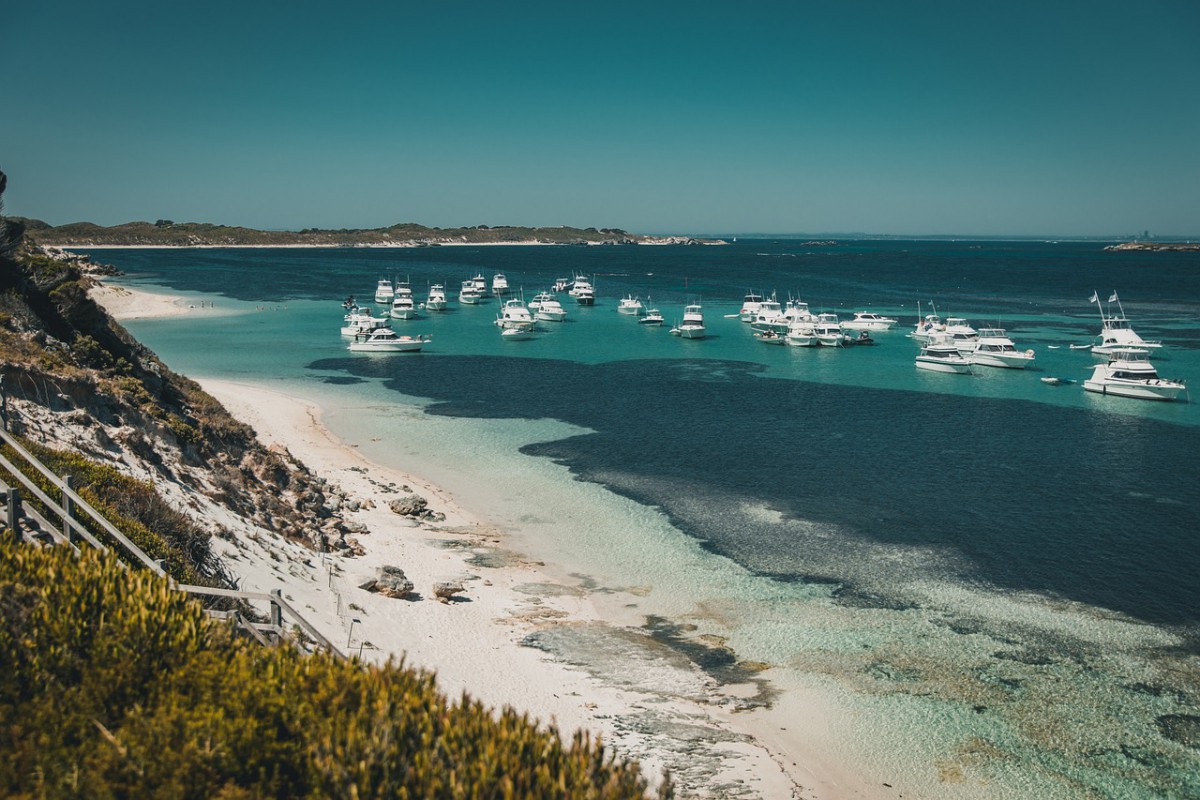Echo Yachts to build world’s largest sailing catamaran
As the Western Australian industry continues to grow, the Perth-based shipbuilder will construct a fully custom 57-metre, twin-masted catamaran…

Echo Yachts, Dykstra Naval Architects and One2Three Naval Architects have collaborated on the design and build of a twin-masted catamaran sailing superyacht. The 57-metre yacht has been commissioned by an experienced private client and is poised to become the world’s largest sail-powered catamaran.
“Echo Yachts are extremely excited and proud to have been selected to custom build this magnificent catamaran sailing superyacht, and look forward to bringing the yacht to fruition,” says Mark Stothard, Echo Yachts Owner and Director.
“This new superyacht will truly elevate the term ‘green superyacht design’ with its low resistance catamaran hull form, sail-powered capability and other emission-reducing technologies”.
When looking at the data provided by Echo Yachts, multihulls are expediently more efficient than their monohull counterparts. For instance, when looking at the 91.5m Oceanco Tranquility (previously known as Equanimity) compared to Echo Yachts’ 84m trimaranWhite Rabbit – despite having a similar gross tonnage, Tranquility requires 7.2MW of power to achieve a top speed of 19 knots.
In contrast, White Rabbit needs only 4.2MW to reach 18.7 knots –a 40% reduction in power consumption. Considering that the industry has extensively voiced its aspirations to decarbonise and adopt more environmentally friendly practices, multihulls present a compelling option.
Dykstra Naval Architects, headquartered in Amsterdam, the Netherlands, brings its expertise to the table, spearheading the exterior styling, layout, and naval architecture of the yacht. With a portfolio boasting iconic sailing yacht projects like Black Pearl and Hetairos, Dykstra Naval Architects is synonymous with excellence in maritime design.
Handling the detailed structural design is the esteemed Australian firm One2Three Naval Architects. Notable for their expertise in aluminium and multihull design, One2Three Naval Architects is responsible for the intricate naval architecture of acclaimed vessels such as the international award-winning 84m aluminium trimaran superyacht White Rabbit, delivered in 2018, and the 56m catamaran superyacht Charley 2, delivered in 2023.
The yacht's aluminium hull form is complemented by twin masts and sails, with a total sail area of around 1660 msq, ideal for efficient long-range cruising. While aluminium offers advantages such as reduced weight and increased speed, it also poses specific difficulties that builders must overcome.
One of the primary challenges is ensuring structural integrity and stability. Aluminium is lighter than steel, but it is also less rigid. Builders must carefully design and engineer the hull and structural components to maintain stability and durability while minimising weight.
“Aluminium fabrication also tends to be a little more challenging and requires a higher level of skill compared to steel. For example, our aluminium welders can easily transition to welding steel, but it's more difficult for steel welders to adapt to welding aluminium,” explains Chris Blackwell, Sales and Marketing Manager, Echo Yachts.
“Unlike steel, aluminium involves more complex weld sequencing and techniques. However, this is only a challenge if you're not already proficient in it. When you have industries like we have here in West Australia, where we have the capability to launch ourselves and maintain a high level of competency and accuracy in our work, it's not an issue for us to handle aluminium fabrication.”
The news is significant as there is currently a lot of movement in the Western Australia superyacht sector, with the state having a 12,000-tonne lifting capacity floating dock too. Coupled with several prominent superyacht builders specialising in the design, manufacturing, and export of custom-made superyachts, refits, and maintenance services, the region is a hub for high-end maritime craftsmanship.
The national domestic fleet of superyachts has seen a noteworthy doubling between 2022 and 2023, indicative of a thriving industry. In 2023 alone, the Western Australian superyacht sector is conservatively estimated to support 1,395 full-time equivalent (FTE) jobs, contributing significantly to the local economy. This includes $119.5 million in wages and salaries paid to Western Australian workers and a substantial $180.6 million contribution to the Gross State Product (GSP), encompassing both direct and flow-on economic impacts.
This new large-scale catamaran sailing yacht project sees Echo Yachts expand on their proven large-custom motor yacht capabilities by entering the large-custom sailing yacht market.
The potential of multihull vessels in the superyacht segment is a core focus of a feature article in the upcoming New Build Report, featuring insights from Echo Yachts and Shadowcat, dissecting why uptake has been relatively slow, and why the industry could see a paradigm shift towards multihulls over the next decade.
Profile links
84.00m 19.60m 4.25m 2940
Sorgiovanni Designs
Sorgiovanni Designs
One2three Naval Architects
NEW: Sign up for SuperyachtNewsweek!
Get the latest weekly news, in-depth reports, intelligence, and strategic insights, delivered directly from The Superyacht Group's editors and market analysts.
Stay at the forefront of the superyacht industry with SuperyachtNewsweek
Click here to become part of The Superyacht Group community, and join us in our mission to make this industry accessible to all, and prosperous for the long-term. We are offering access to the superyacht industry’s most comprehensive and longstanding archive of business-critical information, as well as a comprehensive, real-time superyacht fleet database, for just £10 per month, because we are One Industry with One Mission. Sign up here.
NEW: Sign up for
SuperyachtNewsweek!
Get the latest weekly news, in-depth reports, intelligence, and strategic insights, delivered directly from The Superyacht Group's editors and market analysts.
Stay at the forefront of the superyacht industry with SuperyachtNewsweek



